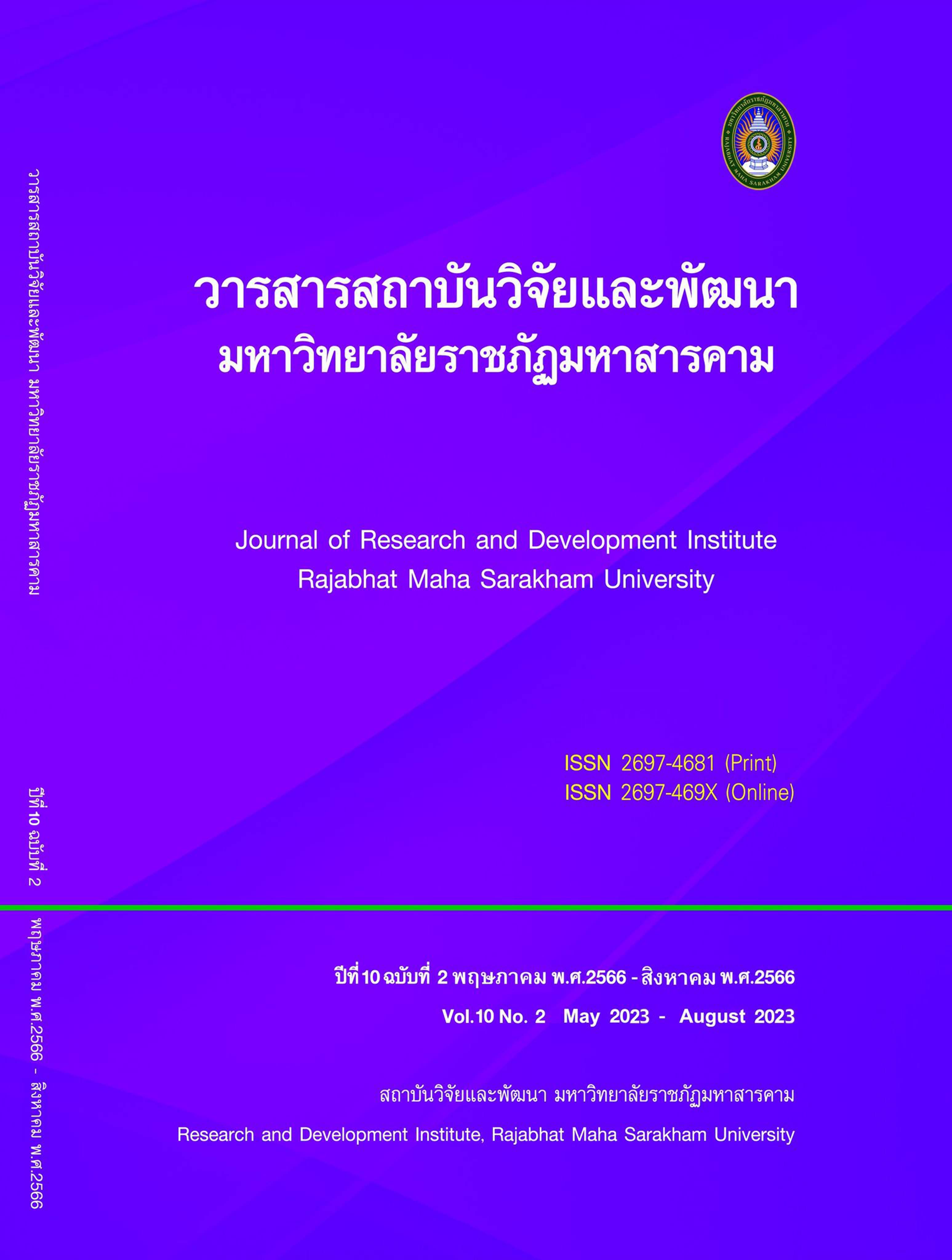BCG Economy E-San Model Sustainable economy and innovation
Keywords:
ต้นแบบอีสาน, เศรษฐกิจชีวภาพ เศรษฐกิจหมุนเวียน และเศรษฐกิจสีเขียว, เมืองอัจฉริยะ และนวัตกรรม.Abstract
Objectives Study 1) To investigate BCG Economy data in order to establish a prototype region that will lead to a Smart City. 2) to utilize the data gathered to create guidelines for green economic growth in the Northeast. 3) to serve as a case study for other provinces or locations to use the knowledge or to serve as a model for future urban development. It is a qualitative study. It is made up of concepts and theories linked to the BCG Economy Model that have been synthesized. In addition to the findings of in-depth interviews with leaders or executives from both public and private organizations, the following ten persons were interviewed: 1) Executives in the medical device industry 2) Hotel industry executives 3) proprietors of processed agriculture businesses 4) Scientists Development of Cities 5) Executive of a Sugar Factory 6) Municipal Executive 7) Executive of a Pharmacy 8) Executive of a Food and Packaging Business 9) Executive of an Innovation Company 10) Officer of Natural Resources and the Environment It was discovered that the existing BCG Economy is suitable for the creation of pilot zones. It was discovered that environmentally friendly technologies were employed to minimize energy consumption and raw materials that have an influence on the environment in the process of leading to a Smart City, including development standards. Products and services, such as the use of materials with a high deterioration time throughout the doctor's lifespan, have been produced. Or the application of technology to limit the usage of chemicals that have an environmental effect and use renewable energy, and may be used to establish a blueprint for future urban development.
References
Kanwet, S. (2016). Personnel's satisfaction towards financial services. Mahasarakham Hospital Journal, 13(3), (September - December)
Kapanich, P. (2011.) Characteristics of financial and accounting staff at educational institutions in Samut Sakhon Province. Bangkok : Siam University.
Kookkaew, P. (2022). Quality of Service Affecting Customer Satisfaction, Provincial Electricity Authority, Suphan Buri Province. Sripatum Chonburi Journal, 17(2), 55-63.
Na Ayuthaya, T. (2004). Marketing for Services: Concepts and Strategies. Bangkok: Chulalongkorn University Press.
Parasuraman, A.& Berry,L.L.(1985).A conceptual model of service quality And its implications for future reseaech.Journal of Marketin, 1, p.44
Shelly, Maynard W. (1975). Responding to Social Chang. Pensylvania : Dowder, Hutchison Press.
Srisantisuk, S. et al. (2022). Service quality and international student satisfaction towards educational services of Khon Kaen University. Journal of Humanities and Social Sciences Nakhon Phanom University,10(1) 64-72
Thadathitikorn, K. (2019). Service quality that affects the satisfaction of sign taxpayers in the Thonburi office area. Bangkok. Journal of Business Administration and Social Sciences. Journal of Business Administration and Social Sciences Ramkhamhaeng University, 2(3) 14-27
Downloads
Published
How to Cite
Issue
Section
License
Copyright (c) 2023 อรอมล หล้าสกุล

This work is licensed under a Creative Commons Attribution-NonCommercial-NoDerivatives 4.0 International License.
Articles that are published are copyrighted by the authors of the articles







